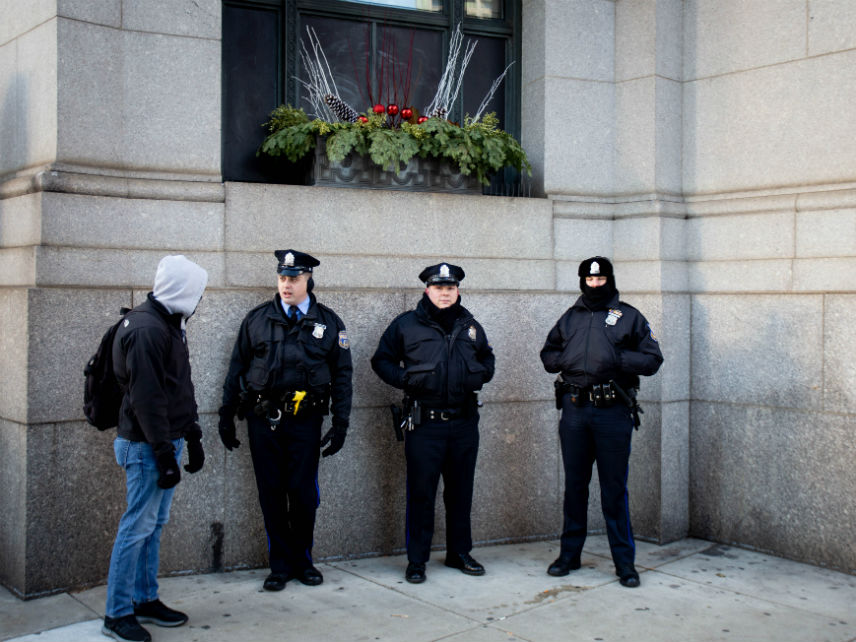Pennsylvania Prosecutor Used Asset Forfeiture Funds To Lease SUV
County officials say the Lancaster County district attorney's use of $20,000 in funds intended for drug enforcement to lease an SUV is "improper."

The district attorney in Lancaster County, Pennsylvania used asset forfeiture revenues intended for drug enforcement to lease a 2016 Toyota Highlander, local newspaper LNP reports:
Since January 2016, the [Lancaster County District Attorney Craig Stedman] has spent more than $21,000 in drug forfeiture proceeds, the largest source of revenue for the county's taxpayer-supported Drug Task Force, to lease and maintain the sport-utility vehicle, records show.
Stedman has driven the SUV to Harrisburg at least 16 times since the spring of 2017, parking records show. His expense reports show he used the vehicle for district attorney business—attending legislative hearings, meeting with the governor's staff and taking part in law conferences and training—that was not directly related to drug-law enforcement.
The report is yet another instance of local prosecutors, drug task forces, and law enforcement using asset forfeiture revenue as a slush fund. Under civil forfeiture laws, police can seize cash and property suspected of being connected to criminal activity, even if the owner is never convicted or even charged with a crime.
In Macomb County, Michigan, county officials have launched an audit of the local prosecutor's office after a successful public records lawsuit revealed more than $100,000 in questionable expenditures from the asset forfeiture fund, including using the funds for office furniture, birthdays, and retirement parties.
In Illinois, former La Salle County state's attorney Brian Towne is facing criminal charges for misconduct and misappropriating public funds after he allegedly spent asset forfeiture funds on an SUV, WiFi for his home, and local youth sports programs. Town created his own highway interdiction unit and asset forfeiture fund for his office, an unusual move that the Illinois Supreme Court later ruled was illegal.
A 2016 Department of Justice Inspector General audit found that an Illinois police department spent more than $20,000 in equitable sharing funds on accessories for two lightly used motorcycles, including after-market exhaust pipes, decorative chrome, and heated handgrips.
And who could forget the Georgia sheriff who purchased a $90,000 Dodge Viper with forfeiture funds for the department's DARE program? Or the other Georgia sheriff who bought a $70,000 Dodge Charger Hellcat (707 horsepower and tinted windows) with forfeiture funds?
Law enforcement groups say civil asset forfeiture is a vital tool to disrupt drug trafficking and other organized crime. However, civil liberties groups say there are far too few due process protections for property owners and too many perverse profit incentives for police.
Many states also have lax reporting requirements for asset forfeiture, making it hard, if not impossible, to keep tabs on what police are seizing, from whom, and what they are spending the proceeds on.
Former Reason contributor Aaron Malin has been suing the pants off local Missouri drug task forces and prosecutors to get their asset forfeiture expenditures.
In 2017, Philadelphia Weekly, in collaboration with City & State PA, reported that the local D.A.'s office had spent $7 million in asset forfeiture funds over the last five years, including "at least one contract that appears to have violated city ethics guidelines—construction work awarded to a company linked to one of the DA's own staff detectives."
You will surely be surprised to read that, back in Lancaster, Stedman's office is battling to hide more of its asset forfeiture expenditures. LNP continues:
The district attorney is fighting LNP's request to review records of hundreds of thousands of dollars in seized drug-related property here every year. The state Office of Open Records has ordered Stedman to release those records, but the district attorney has appealed to the county Court of Common Pleas and argues the law shields expenditure records from disclosure.


Show Comments (17)